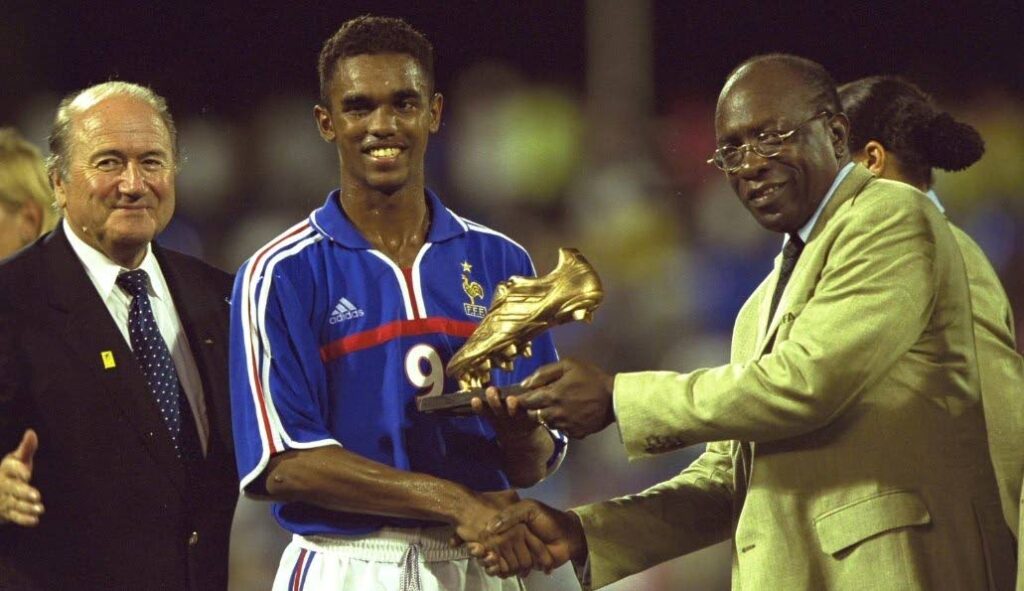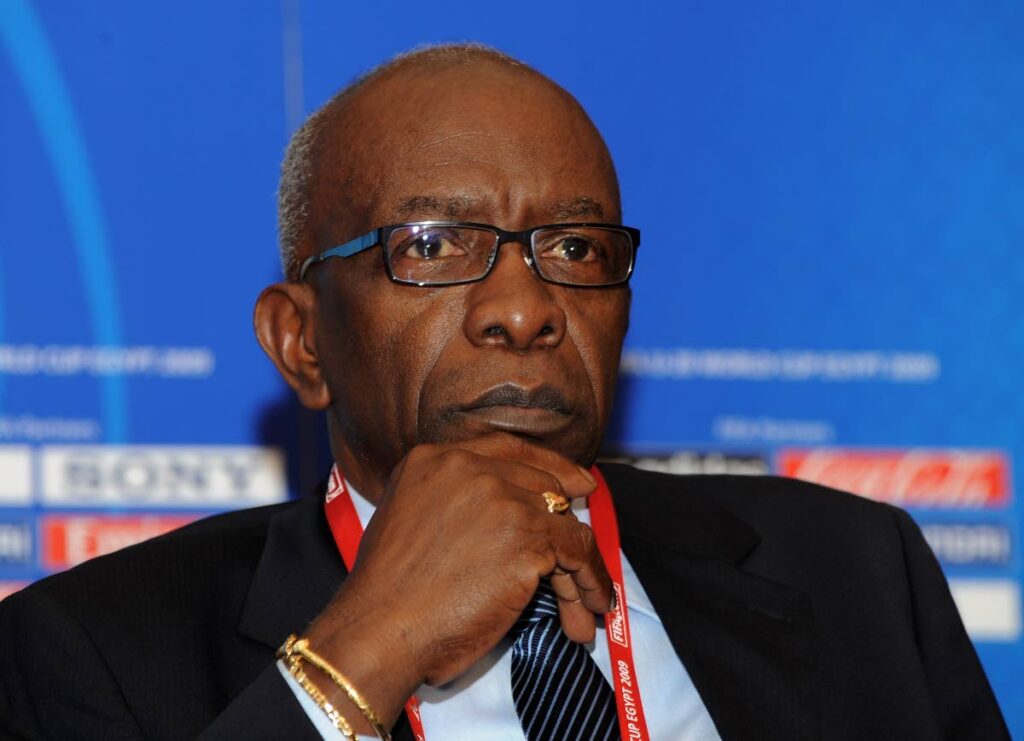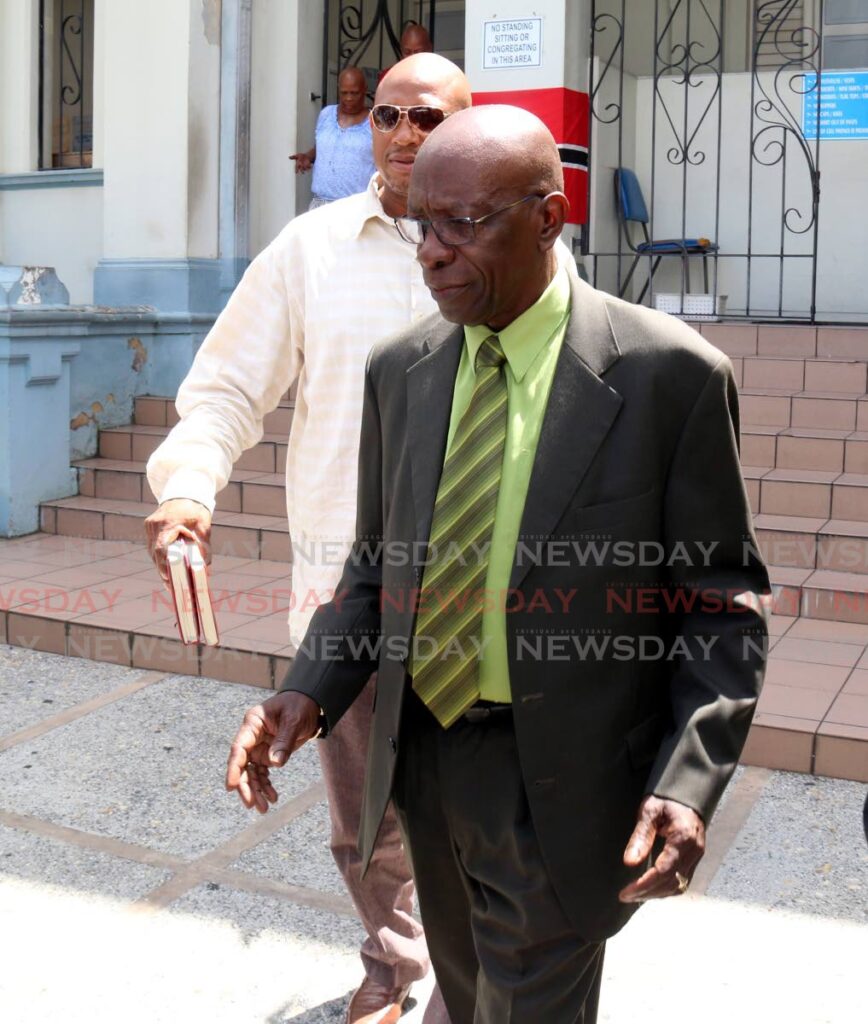Warner's foul on Qatar's World Cup bid

At noon Sunday, the first ball will be kicked off at the FIFA World Cup 2022 in Qatar.
While there is no national team in the competition, recent events in TT dredges up the controversy as to how the smallest nation ever became host to one of the biggest sporting events.
Late last week when TT’s apex court, the Privy Council, in London, ruled that former FIFA vice president Jack Warner could face extradition to the United States for a barrage of racketeering and bribery charges.
The decision to chose Qatar made in 2010 as host nation for the 2022 games has been questioned and linked to allegations of bribery and corruption by those FIFA officials who voted for the Gulf nation.
Ex-FIFA head Sepp Blatter recently admitted choosing Qatar was a bad choice.
International media reports have linked Warner, who was barred by FIFA for life in 2015 after his grand jury indictment in the US, as being instrumental in the bid which allowed Qatar to get the nod to host this year’s tournament.
In 2020, documents released by the US Department of Justice’s in the indictment filed in the US District Court of New York’s Brooklyn Office set out the allegations in relation to the 2018 and 2022 voting bid for Russia and Qatar.

-
It said, “On or about December 2, 2010, in Zurich, Switzerland, the FIFA executive committee selected the host sites for the 2018 and 2022 World Cups, in separate rounds of voting for each edition of the tournament, with each executive committee member casting an equally weighted vote. “Under the voting rules, if no bid received a majority of the votes cast, the bid receiving the fewest votes was eliminated and another vote was held.
“The process was repeated until one bid received an outright majority of the votes. Russia received a majority of votes in the second round of voting for the 2018 World Cup. Qatar received a majority of votes in the fourth round of voting for the 2022 World Cup.
The indictment went on to add, “Several executive committee members were offered or received bribes in connection with their votes. For example, the defendant Ricardo Teixeira (the former leader of football in Brazil), Nicolas Leoz (former president of the South American Football Federation) and co-conspirator# 1 were offered and received bribe payments in exchange for their votes in favour of Qatar to host the 2022 World Cup.”
Warner’s name was mentioned next, “In addition, the defendant Jack Warner was promised and received bribe payments totalling US$5 million and Rafael Salguero was promised a US$1 million bribe in exchange for their votes in favour of Russia to host the 2018 World Cup.”
The US Department of Justice documents explained the 2018 and 2022 World Cup vote schemes.
“In or about and between 2009 and 2010, bid committees working on behalf of various nations prepared presentations in support of bids to host either the 2018 or 2022 World Cup.

Ultimately, bid committees representing Russia, England, a joint bid by Spain and Portugal and a joint bid by the Netherlands and Belgium submitted bids to host the 2018 World Cup, and bid committees representing the United States, Qatar, Japan, South Korea and Australia submitted bids to host the 2022 World Cup.”
Warner recently told Trinidad online news outlet AZP News he thought it was Russia’s time to host the World Cup.
“Where I failed I should have told England very early of what my intention was. I did not do that and therefore they were led along to believe I was supporting them. I failed, I erred and I apologise profusely for that but I thought it was Russia’s time to host a World Cup and I have no regret.”
Warner’s name was linked to Qatari football administrator and ex-head of the Asian Football Confederation Mohammed Bin Hamman in 2014. Warner was then head of the Confederation of North, Central American and Caribbean Association Football (Concacaf). A FIFA ethics judge named both men as having contravened rules regarding payments.
At the time, a FIFA statement said: “The subject of the criminal complaint is the possible misconduct of individual persons in connection with the awarding of the hosting rights of the 2018 and 2022 World Cups investigated by Michael Garcia (chairman of the FIFA Ethics Committee investigatory chamber).
“In particular there seem to be grounds for suspicion that, in isolated cases, international transfers of assets with connections to Switzerland took place, which merit examination by the criminal prosecution authorities.”
Both men were suspended and vociferously maintained their innocence.
The Qatar 2022 organising committee has repeatedly denied any involvement in corruption during the chaotic and ill-defined World Cup bidding race, and sought to distance itself from Bin Hammam, the UK Guardian newspaper wrote.
Warner, who resigned from football for life in June 2012, again maintained his innocence on Thursday.
Hours after the Privy Council’s decision went public, he said in a statement, it was “unfathomable” for a US district attorney to commence a prosecution against him “based solely on the fact that monies payable to me passed through the American banking system.”
Warner said he has no bank account or property in the US, nor has he done any business there.
“Furthermore, it is incredulous that allegations of misconduct arising out of a FIFA meeting held in Trinidad could be prosecuted in the United States whereas, in Trinidad itself it does not constitute criminal activity.”’
A defiant Warner also said, “I have lived in this country for nearly eighty years, and I am confident that I will continue to receive the love, affection, and respect that people from all walks of life have always extended to me. I am certain I will prevail in the end.”
Although extradition proceedings in the magistrates’ court can now resume, Warner said he has advised his attorneys to continue to press the remaining stages of the extradition proceedings.
Warner challenged the process by which the extradition proceedings against him were being carried out and sought to quash the authority to proceed (ATP) signed by the Attorney General in September 2015.
This was after the US made its request to have the former football jefe extradited to face some 29 charges of fraud, corruption and money laundering. The US’s request was made on July 24, 2015.
After the 2015 general election, then-attorney general Faris Al-Rawi offered to allow Warner to make representations, but only on the condition the deadline for receipt of the ATP would be extended with his consent.
Warner refused to agree to the condition. His attorneys said he was not given sufficient time to make representations nor was he provided with disclosures of any evidence the US intended to use to secure his extradition.
The ATP gave the magistrate the green light to begin committal proceedings.
Warner surrendered to fraud squad officers on May 27, 2015, after learning of a provisional warrant for his arrest.
After the ATP was signed giving the go-ahead for extradition proceedings to start, Warner was banned from all football activities for life by FIFA.
He and 13 other FIFA officials were indicted in the US.
According to the US charge sheet against him, Warner is accused of racketeering, wire fraud, money laundering, and bribery; and allegedly, from the early 1990s, "began to leverage his influence and exploit his official positions for personal gain."
He also allegedly accepted a million-dollar bribe from South African officials in return for voting to award them the 2010 World Cup and allegedly bribed officials with envelopes each containing cash.
He was one of 14 charged in connection with a 24-year scheme to allegedly “enrich themselves through the corruption of international soccer.”
On Thursday, Warner said FIFA was an independent association not affiliated to any government or country.
“At all times it sought, in the interest of football, to offer opportunities to the widest cross section of the international community to host the World Cup.
“Particular attention was paid to developing countries who have been denied economic opportunity partly because for long periods they were under colonial domination.”
He said FIFA gave preference to South Africa, Russia and Qatar to host World Cup finals.
Warner said, “Naturally, the United States of America and the United Kingdom who had previously hosted the World Cup were not selected despite sustained lobbying.
“They were therefore not pleased and thereafter began a campaign against FIFA which resulted in the arrest and prosecution of several executive committee members of FIFA who had assembled for a meeting in Zurich.”
Warner said several European countries, including France and Switzerland; several Latin American countries, including Brazil, and several African and Middle Eastern countries have refused to extradite their citizens.
“Trinidad and Tobago is therefore an outlier,” he said on Thursday.
Warner is a former UNC minister. He was described as a politician, businessman and former FIFA vice president who was charged by the prosecuting authorities in the United States with crimes spanning more than three decades.
Attorney General Reginald Armour, SC, found this description to be significant and specifically referred to it in a press release on the Privy Council’s ruling.
Armour also said the law must now be allowed to take its course and that “the rule of law and due process are alive and well in TT.”
And while Warner’s name has been vilified, football stakeholders locally said he contributed significantly to the growth of the sport here and in the Caribbean.


Comments
"Warner’s foul on Qatar’s World Cup bid"